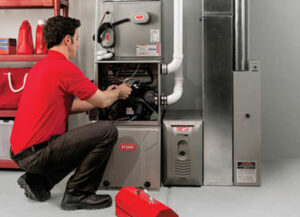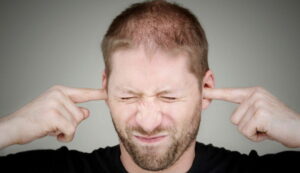Pros and Cons of Water Softener
If you are in the market for a water softener, you will enjoy this article on the water softener pros and cons. It will allow you to make an informed decision on whether a water softener makes sense for you and your family.
In many cases, the decision to soften your water comes down to personal preference. Although there is no requirement to use a water softener, many homeowners would not do without one.
See Furnace Repair Calgary’s response to Covid-19.
Do You Need a Water Softener?
Calgary’s water is considered hard because of the amount of calcium and magnesium in the Bow and Elbow Rivers water.
We measure water hardness in milligrams of calcium (Ca) per liter. Experts consider your water hard if it contains more than 120 mg of Ca per liter. To test your water, bring a water sample to a water test lab.
In that case, you might need a water softener to ensure your appliances run well and keep your skin moist. In addition, many homeowners prefer the taste of water filtered through a water softener.
Another way to tell if you need a water softener is to observe any of the following signs:
- Stains on glass and cutlery
- Less lather when using soap or shampoo; some won’t lather at all
- Scratchy and faded linen
- Deposition of scale in metal pipes and other metal surfaces
- Stains on sinks
- Dry hair and skin
Please note that the Canadian government has not set a maximum acceptable level for domestic water since some consumers can tolerate harder water.
Are Water Softeners Safe?
Yes, water-softening systems are safe. Most people can drink softened water with no ill effects.
Water softeners effectively combat the adverse reactions of hard water, such as dry skin and stained sinks. Calcium and magnesium cause hard water. Water softeners replace calcium and magnesium ions with salt.
For most adults, the amount of sodium added to tap water by softening is too small to be harmful or cause any health concern. It’s safe to drink and doesn’t change the way the water tastes.
While it may concern people with high blood pressure who must maintain a low-sodium diet, It is possible, for instance, to separate the tap water used for drinking and cooking from the system while still enjoying the softened water for cleaning bathing, and laundry.
In the market for a high efficiency furnace. Check out how a two-stage furnace can keep you comfortable all winter.
Water Softener Pros
Gets rid of stains
Homeowners do not appreciate stains on their cutlery, glasses, tubs, or sinks—moreover, hard water stain windows. Water softeners soften the water. As a result, they eliminate stains and reduce the expense of cleaning the stained surfaces.
No more dry skin and hair
Hard water can make your skin dry, even when you apply lotion. Softened water prevents dryness.
Reduces soap wastage
Little lather makes it challenging to wash your hands. Soft water facilitates the lathering process to make cleaning easier.
Soft fabric after washing and minimal water usage
Water softeners not only remove elements such as magnesium and calcium from your water, but they also remove chlorine. The result is softer linens. There is a good chance that you don’t even need to use fabric softeners with soft water.
Longer Lasting Appliances
Hard water contains a lot of calcium. Over time, calcium clogs water pipes connected to your water heater and other appliances, which could cause the water heater to puncture.
Water Softener Cons
While water softeners eliminate dry skin and stained cutlery, there are also disadvantages, as we discuss below.
Expensive to install
Water softeners can cost up to $2,000 to install. They also require regular maintenance since the thousands of resin beads stored in the tank will eventually run out of sodium ions.
Negative impact on the environment
If you release the softened water to the environment, it increases the soil’s acidity, therefore, making the plants less productive.
Water Softener Pros and Cons – Final Word
Like anything, there are pros and cons to water softeners. However, for domestic use, the benefits outweigh the disadvantages. While water softeners may initially be hard on your wallet, soft water is easier on the skin, plumbing, faucets, laundry, and appliances.






